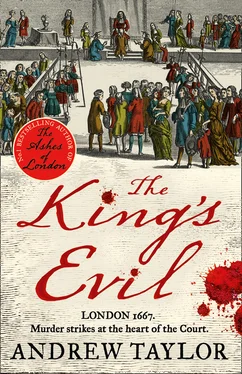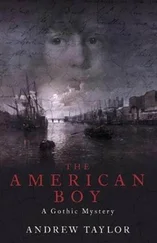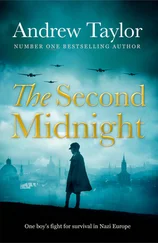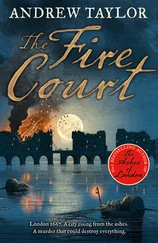Next I went up to inspect the main apartment on the first floor of the pavilion. The work was more advanced here than it was below. The windows were glazed and barred. At the top of the stairs was the door to the viewing platform. It too was locked and bolted.
At last I could no longer delay the inevitable. In the basement, Milcote and I stripped off Edward Alderley’s outer clothing. It was no easy matter, even with two of us, to manoeuvre his body. Alderley had always been a big, overweight man and, since I had last seen him, he had become even grosser.
Intimate contact with the dead, I thought, this prying into the consequences of death, should be growing easier for me since the events of the last twelve months. But custom had not yet formed a callus over my squeamishness; perhaps it never would.
‘How did Gorse know that someone was in the well?’ I asked as we were tugging Alderley’s arms from his sleeves.
‘The cover was off,’ Milcote said. ‘And he stumbled on Alderley’s hat, which was on the floor. He had the wit to look down the shaft.’
‘Why was he in the pavilion at all at that hour? Was that usual?’
‘No. But Mr Hakesby was expecting a delivery of lime, and he couldn’t get here himself until later. So I sent Gorse instead. He unlocked the garden door and then he came down to the basement to open the windows. The atmosphere is damp, and we try to keep the place aired. It was still dark down here, and he had a lantern.’
The body’s legs flopped on to the stone floor, and a long, lingering blast of wind erupted from the corpse’s belly.
‘God’s heart,’ Milcote said. ‘What a job is this. Does one ever get used to it?’
‘Probably not,’ I said curtly. How did he think I spent my days, I thought – laying out corpses?
I noted that the body was not in that phase of rigidity that corpses pass through after death. Perhaps the coldness of the well water had delayed its onset. If only, I thought, there were an exact way of measuring temporal gradations of decay, we should be able to deduce when Alderley had drowned, or at least to narrow down the time when it had happened. All we knew at present was that he had died between Saturday evening, when Hakesby and the builders had locked up, and this morning when Matthew Gorse had come to unlock the pavilion for the early delivery.
I suppressed the uncomfortable thought that there was another possibility: that Cat had been there with Hakesby on Saturday, and that Alderley had died before they had gone home for the night.
It took two of us to remove each of the boots because the leather was so saturated with water. Despite our labours, I was cold. The temperature in the basement seemed to drop lower and lower. The water chilled my hands and splashed over my clothes.
‘Who has a key?’ I said, panting, when Alderley’s feet were bare, exposing untrimmed nails like pale talons.
Milcote lobbed a boot into the corner. ‘Mr Hakesby. I have a set, too – I have all the household keys. My lord has another set, though those are never used and lie locked in his closet. Then there’s the steward’s – Gorse would have used the pavilion key from there.’
‘And the house and garden?’
‘Locked as tight as a drum. We take no chances, not after those attacks on my lord. During the night, the mastiffs are loose in the garden, and watchmen make an hourly circuit. There are two porters awake in the house, and lanterns in the forecourt.’
‘Then how did Alderley get here?’ I asked.
Milcote shrugged. ‘It’s a perfect mystery. Unless he came during the day, while the men were here. And he was already dead when they locked up.’
This was an echo of my own thoughts, and it led me back to Hakesby and Cat. I turned to Alderley and unstrapped his belt. The breeches were almost as hard to remove as the boots had been.
Death makes a man small as well as making him ridiculous. When we had stripped Alderley to his shirt, he looked shrunken and as vulnerable as a child. Milcote held up the lantern and I examined the body as best I could. There were grazes on the forearms and shoulders, and much broken skin on the fingers. They told their own grim story of a drowning man struggling in the water, enclosed by the sheer walls of the well. I felt the skull and found a bruise on the forehead.
Had he hit his head as he was falling down the well? Or had someone hit him beforehand?
Crouching, we rolled him on to his back again. Milcote watched closely as I turned my attention to the pockets. Alderley had been carrying a purse containing nearly thirty shillings in silver and two pounds in gold. That was a small fortune to most people; but poverty was a relative condition.
There were also two keys on a ring. One was made of blackened iron and had a long shank. The other was much smaller, and far more delicate: it appeared to be made of silver, and had a finely wrought ring at the top that contained what looked like a monogram. I held up the second key to the light of the window, but the letters were so entwined and so clogged with delicate arabesques that I could not even distinguish whether there were two or three of them.
Next, in an inner pocket, I found a sodden bundle of papers. I tried to separate the leaves from each other but the paper tore.
‘Have you a pouch or bag I could use?’ I asked.
‘What?’ Milcote dragged his eyes away from Alderley’s possessions. ‘A pouch?’
‘I’ll take these with me. I need something to put them in.’
He nodded. ‘Of course.’
He went away and came back with a small bag of coarse canvas, its top secured with a drawstring. ‘Will this do?’
‘Admirably.’
He opened the bag, shook out its contents, a dozen or so newly forged nails, on the floor, and passed it to me. I put the papers, the key and money into it.
‘He used to live in Barnabas Place in Holborn,’ I said. ‘A big place – you could house an army in it. Was he still there?’
‘No. He had to sell it and most of the contents to pay his own debts. But he retained an interest in another house nearby, and he was living there. In Fallow Street.’
‘Did you ever go there?’
Milcote shook his head. ‘We met at a tavern or he came here. He grumbled about how small his lodgings were. And it was mortgaged, too, and he’d had to let part of it to a carpenter.’ He gave me a rueful smile. ‘I think he was ashamed. He didn’t want me to see how mean his condition had become. In truth, I didn’t know him that well, but I felt sorry for him.’
I turned back to the body. Alderley’s mouth had fallen open. I took up the sword. It was a narrow blade of fine steel. Two silk ribbons, one red and one blue, had been knotted around the hilt. Perhaps some lady had given them to him to wear as her favour. A design had been engraved on the blade just below the hilt. I held the sword up to the light and recognized the form of a pelican eating its young, the Alderley crest.
‘It’s an old Clemens Horn,’ Milcote said. He stretched out his hand and touched the blade with lingering respect, as a man might touch the hand of a beautiful woman who did not belong to him. ‘German. Must be nigh on fifty years old, but you won’t find a better sword.’
‘I should like to see the well,’ I said.
It was a relief to move away from the body. Milcote and I lifted off the cover and laid it on the floor. It moved easily. A man could have removed it by himself, if necessary. Or, for that matter, a woman.
Milcote crouched on the edge and held the lantern over the void. I could see nothing beyond its light. At my request, he took a rope and attached it to the ring at the top of the lantern. He lowered the light into the well. It glistened on cleanly cut masonry – the shaft was lined with stone, not brick.
Читать дальше












